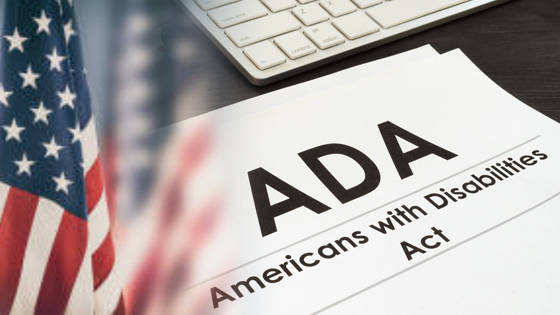
When we think of the Internet, we think of a place where no boundaries exist, and everyone who is able and willing to use it can access information and technology. But according to Michael Hingson, chief vision officer at accessiBe, this isn’t the case for many individuals with disabilities.
Writing for Forbes, Hingson discusses the 31st anniversary of the Americans with Disabilities Act, which he says has helped make buildings and public transportation more accessible to those with disabilities.
But when it comes to the Internet, Hingson notes that there are still significant gaps in accessibility. For example, many websites feature huge barriers for people whose ability to read print is impaired by conditions such as dyslexia. Others contain many images, which are useless without text descriptions.
“Taking it a step further, when you begin thinking about all of the different websites that come together to create an entire experience—the apps and programs that collect data for analytics purposes or perhaps enable payment processing features—it becomes clear how vast the accessibility challenge is,” Hingson adds.
Hingson points out that 380 new websites are created every minute, and programmers who attempt to make them more accessible can’t keep up. He also notes that there is no such thing as universal design for the Web, which would allow individuals with disabilities to personalize their online experience.
“We need a scalable solution,” he says.
Hingson believes that new artificial intelligence solutions can help solve many of these problems. For example, accessiBe provides text-to-speech capabilities for nonvisual browsers and allows individuals to customize the way they view websites by using voice commands.
“Programmers are only one part of the equation; we believe that AI can actually drive programmer behavior and scale development,” he says.
Hingson notes that the Internet is such a valuable resource for those with disabilities, and they shouldn’t be limited from using it like it currently is. Instead, he urges companies to take accessibility more seriously and find solutions that can help bridge the gap.
“We urge you to start thinking about how your company, your department, or even your product can play a role in making the Internet more accessible for everyone,” he concludes.
Hingson went on to say, “It is important to make it easier for all, rather than harder. Programmers alone cannot keep up with the creativity and ingenuity of those that create these products and services without considering accessibility. AccessiBe is a scalable solution that will help.”
“Inclusiveness is a fundamental right, not a privilege. All people, regardless of ability or background, should have the opportunity to benefit from the many benefits of technology,” Hingson said.
Hingson went on to say, “It is important to make it easier for all, rather than harder. Programmers alone cannot keep up with the creativity and ingenuity of those that create these products and services without considering accessibility. AccessiBe is a scalable solution that will help.”
In closing, Hingson said, “I am excited about the future of AI and what it will mean for accessibility on the Internet.”